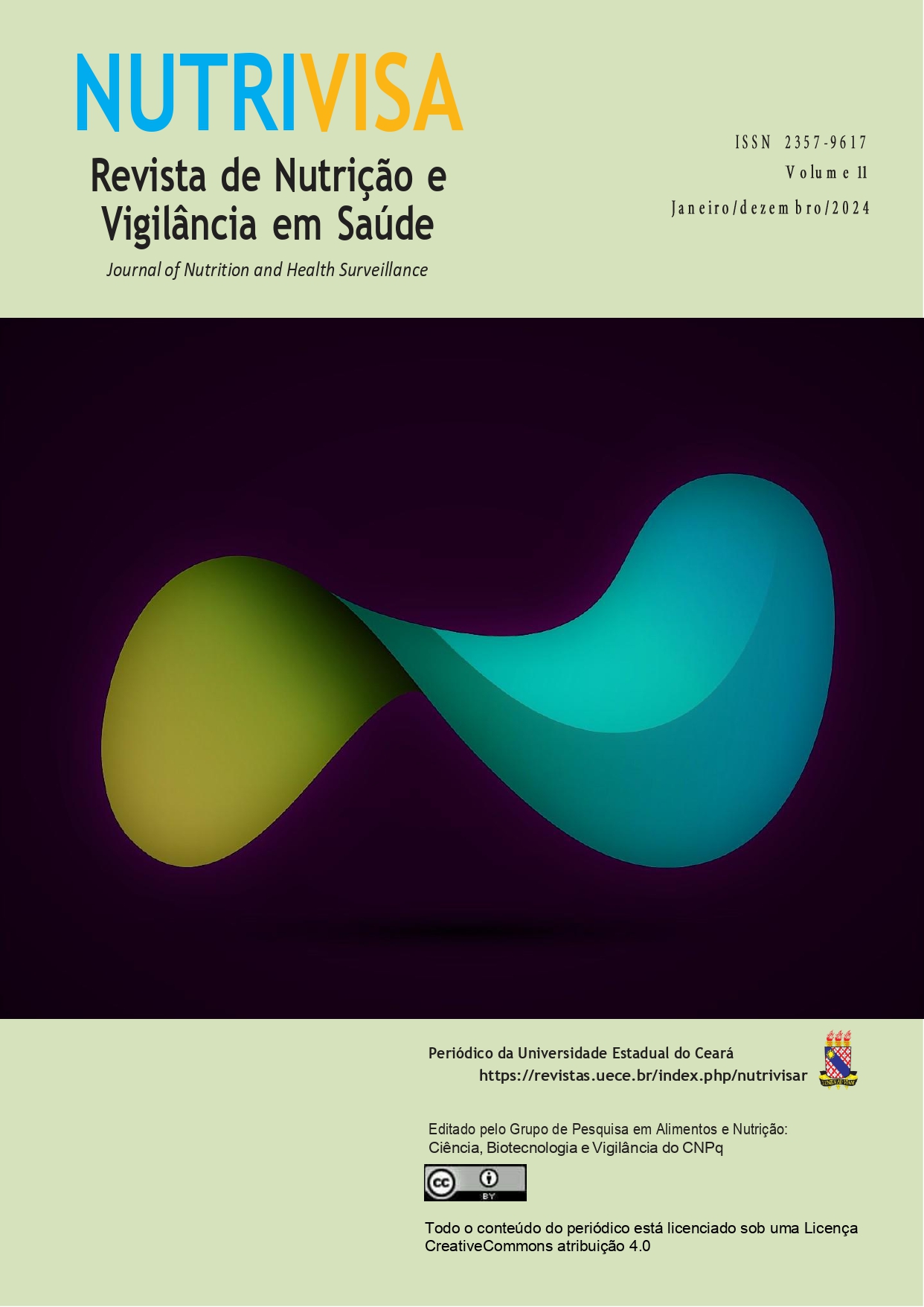The objective of this study was to evaluate the relationship between sleep quality and indicators of dietary intake and physical activity levels among military police officers of the Special Police Operations Battalion (BOPE) during the COVID-19 pandemic. The initial sample consisted of 49 male police officers, aged between 30 and 52 years. During data collection, one participant withdrew, one participant passed away, and seven did not complete all the necessary questionnaires for data analysis, resulting in a final study sample of 40 officers. Data were collected using the International Physical Activity Questionnaire (IPAQ), the Pittsburgh Sleep Quality Index (PSQI), the Epworth Sleepiness Scale (ESS), and a 24-hour dietary recall. Data were analyzed using Pearson's Chi-square tests for associations between categorical variables and Student's t-test for differences between means. Most BOPE officers exhibited good sleep quality, very high levels of physical activity, and higher intake of carbohydrates and fats from unprocessed and minimally processed foods. However, 45% of the military police officers reported poor sleep quality, with a higher consumption of processed foods (bread, cheese, and cream) under these conditions, while 40% exhibited daytime sleepiness. Higher frequencies of poor sleep quality were observed among insufficiently active officers; however, the low number of officers in this category prevented the use of association tests to analyze statistical significance. It was concluded that officers with poor sleep quality, as identified by the PSQI, had a higher consumption of processed foods. Therefore, the need for greater attention to the dietary and lifestyle habits of military police officers, especially in special battalions, was highlighted to improve working conditions and quality of life.
DOI:
https://doi.org/10.59171/nutrivisa-2024v11e12998Keywords:
police; food consumption; physical activity; sleep quality; BOPE.Abstract
The objective of this study was to evaluate the relationship between sleep quality and indicators of dietary intake and physical activity levels among military police officers of the Special Police Operations Battalion (BOPE) during the COVID-19 pandemic. The initial sample consisted of 49 male police officers, aged between 30 and 52 years. During data collection, one participant withdrew, one participant passed away, and seven did not complete all the necessary questionnaires for data analysis, resulting in a final study sample of 40 officers. Data were collected using the International Physical Activity Questionnaire (IPAQ), the Pittsburgh Sleep Quality Index (PSQI), the Epworth Sleepiness Scale (ESS), and a 24-hour dietary recall. Data were analyzed using Pearson's Chi-square tests for associations between categorical variables and Student's t-test for differences between means. Most BOPE officers exhibited good sleep quality, very high levels of physical activity, and higher intake of carbohydrates and fats from unprocessed and minimally processed foods. However, 45% of the military police officers reported poor sleep quality, with a higher consumption of processed foods (bread, cheese, and cream) under these conditions, while 40% exhibited daytime sleepiness. Higher frequencies of poor sleep quality were observed among insufficiently active officers; however, the low number of officers in this category prevented the use of association tests to analyze statistical significance. It was concluded that officers with poor sleep quality, as identified by the PSQI, had a higher consumption of processed foods. Therefore, the need for greater attention to the dietary and lifestyle habits of military police officers, especially in special battalions, was highlighted to improve working conditions and quality of life.
References
ALKHALDI, E. H.; BATTAR, S.; ALSUWAILEM, S.; ALMUTAIRI, K. S.; ALSHAMARI, W. K.; ALKHALDI, A. H. Effect of nighttime exercise on the sleep quality among the general population in Riyadh, Saudi Arabia: A cross-sectional study. Cureus, v. 15, n. 7, 2023. doi: https://doi.org/10.7759/cureus.41638.
ALLEN, K.; SAFI, A.; DEB, S. K. An exploration into the impact that shift work has on the nutritional behaviours of UK police officers. The British journal of nutrition, v. 130, n. 2, p. 284–293, 2023. doi: https://doi.org/10.1017/S0007114522002999.
ALNAWWAR, M. A.; ALRADDADI, D.; ALGETHMI, R. A.; SALEM, G. A.; SALEM, M. A.; ALHARBI, A. A. The effect of physical activity on sleep quality and sleep disorder: A systematic review. Cureus, v. 15, n. 8, 2023. doi: https://doi.org/10.7759/cureus.43595.
AMARAL, J. A. DO; SANTOS, A. M. P. V. DOS. Physical performance of military personnel before and during the Covid-19 pandemic. Revista Brasileira de Ciências do Esporte, v. 43, 2021. doi: https://doi.org/10.1590/rbce.43.e003221.
ANDREEVA, V. A.; PEREZ-JIMENEZ, J.; ST-ONGE, M.-P. A systematic review of the bidirectional association between consumption of ultra-processed food and sleep parameters among adults. Current obesity reports, v. 12, n. 4, p. 439–452, 2023. doi: https://doi.org/10.1007/s13679-023-00512-5.
BERNARDO, V. M.; SILVA, F. C.; FERREIRA, E. G.; BENTO, G. G.; ZILCH, M. C.; SOUSA, B. A.; SILVA, R. Atividade física e qualidade de sono em policiais militares. Revista Brasileira de Ciências do Esporte, v. 40, n. 2, p. 131–137, 2018. doi: https://doi.org/10.1016/j.rbce.2018.01.011.
BERTOLAZI, A. N.; FAGONDES, S. C.; HOFF, L. S.; DARTORA, E. G.; MIOZZO, I. C. S; BARBA, M. E. F; MENNA BARRETO, S. S. Validation of the Brazilian Portuguese version of the Pittsburgh Sleep Quality Index. Sleep medicine, v. 12, n. 1, p. 70–75, 2011. doi: https://doi.org/10.1016/j.sleep.2010.04.020.
BERTOLAZI, A. N.; FAGONDES, S. C.; HOFF, L. S.; PEDRO, V. D.; MENNA BARRETO, S. S.; JOHNS, M. W. Portuguese-language version of the Epworth sleepiness scale: validation for use in Brazil. Jornal brasileiro de pneumologia: publicacao oficial da Sociedade Brasileira de Pneumologia e Tisilogia, v. 35, n. 9, p. 877–883, 2009. doi: https://doi.org/10.1590/S1806-37132009000900009.
BINKS, H.; VINCENT, G. E.; GUPTA, C.; IRWIN, C.; KHALESI, S. Effects of diet on sleep: A narrative review. Nutrients, v. 12, n. 4, p. 936, 2020. doi: https://doi.org/10.3390/nu12040936.
BISSON, A. N. S.; LACHMAN, M. E. The relationship of daily physical activity and sleep in adults: variations by age, sex, and race. Journal of behavioral medicine, v. 46, n. 4, p. 642–654, 2023. doi: https://doi.org/10.1007/s10865-022-00387-2.
BRASIL, G. M.; DURÃO, S. S. B.; SOUZA, A. P.; VITURI, G. C.; CRUZ, L. A. Efeitos da pandemia na Polícia Militar: vulnerabilidades das polícias e do policiamento no Brasil. Dilemas, v. 16, n. 3, p. e51834, 2023. doi: https://doi.org/10.4322/dilemas.v16.n.3.51834.
BRASIL. Ministério da Saúde: Guia Alimentar para a População Brasileira: promovendo a alimentação saudável. Normas e manuais técnicos: Brasília, 2014. Disponível em: https://bvsms.saude.gov.br/bvs/publicacoes/guia_alimentar_para_a_pop_brasiliera_miolo_internet.pdf.
CARASSA, A. T.; HILÁRIO, C. M. Produção científica sobre a Polícia Militar na Scielo: um estudo bibliométrico dos principais autores e a interlocução entre eles. Informação Profissões, v. 8, n. 1, p. 12–27, 2019. doi: https://doi.org/10.5433/2317-4390.2019v8n1p12.
CHAPUT, J.-P.; DUTIL, C.; FEATHERSTONE, R.; ROSS, R.; GIANGREGORIO, L.; SAUNDERS, T. J.; JANSSEN, I.; POITRAS, V. J.; KHO, M. E.; ROSS-WHITE, A.; ZANKAR, S.; CARRIER, J. Sleep timing, sleep consistency, and health in adults: a systematic review. Applied Physiology Nutrition and Metabolism, v. 45, n. 10 (Suppl. 2), p. S232–S247, 2020. doi: https://doi.org/10.1139/apnm-2020-0032.
DELPINO, F. M.; FIGUEIREDO, L. M.; FLORES, T. R.; SILVEIRA, E. A.; SANTOS, F. C.; WERNECK, A. O.; LOUZADA, M. L. C.; ARCÊNCIO, R. A.; NUNES, B. P. Intake of ultra-processed foods and sleep-related outcomes: A systematic review and meta-analysis. Nutrition (Burbank, Los Angeles County, Calif.), v. 106, n. 111908, p. 111908, 2023. doi: https://doi.org/10.1016/j.nut.2022.111908.
GARBARINO, S.; GUGLIELMI, O.; PUNTONI, M.; BRAGAZZI, N.L.; MAGNAVITA, N. Sleep quality among police officers: Implications and insights from a systematic review and meta-analysis of the literature. International journal of environmental research and public health, v. 16, n. 5, p. 885, 2019. doi: https://doi.org/10.3390/ijerph16050885.
GARCIA, L. O. R.; SILVA, M.-R. G.; FRANÇA, R. M. Estresse Ocupacional, qualidade do sono e obesidade em Policiais Militares - Revisão narrativa. Research, Society and Development, v. 10, n. 3, p. e36510313485, 2021. doi: https://doi.org/10.33448/rsd-v10i3.13485.
GOVERNO DO ESTADO DO CEARÁ [Internet]. Secretaria da Segurança Pública e Defesa Social do Estado do Ceará. Bope e Bepi da PMCE comemoram três anos de implantação dentro da nova reestruturação da corporação. Acesso em: 20 abr. 2024. Disponível em: <https://www.ceara.gov.br/2022/02/18/bope-e-bepi-da-pmce-comemoram-tres-anos-de-implantacao-dentro-da-nova-reestruturacao-da-corporacao/> (2022).
GOVERNO DO ESTADO DO CEARÁ. LEI Nº 13.729, DE 11 DE JANEIRO DE 2006. Estatuto Dos Militares Estaduais Do Ceará. 2006.
JAMES, L.; JAMES, S.; ATHERLEY, L. The effects of shift-work schedules on the sleep, health, safety, and quality of life of police employees during the COVID-19 pandemic. Frontiers in psychology, v. 14, 2023. doi: https://doi.org/10.3389/fpsyg.2023.1128629.
MA, C. C.; HARTLEY, T. A.; SARKISIAN, K.; FEKEDULEGN, D.; MNATSAKANOVA, A.; OWENS, S.; GU, J. K.; TINNEY-ZARA, C.; VIOLANTI, J. M.; ANDREW, M. E. Influence of work characteristics on the association between police stress and sleep quality. Safety and health at work, v. 10, n. 1, p. 30–38, 2019. doi: https://doi.org/10.1016/j.shaw.2018.07.004.
MATSUDO, S.; ARAÚJO, T.; MATSUDO, V.; ANDRADE, D.; ANDRADE, E.; OLIVEIRA, L. C.; BRAGGION, G. QUESTIONÁRIO INTERNACIONAL DE ATIVIDADE FÍSICA (IPAQ): ESTUDO DE VALIDADE E REPRODUTIBILIDADE NO BRASIL. Revista Brasileira de Atividade Física & Saúde, [S. l.], v. 6, n. 2, p. 5–18, 2001. doi: https://doi.org/10.12820/rbafs.v.6n2p5-18.
MENEZES-JÚNIOR, L. A. A.; ANDRADE, A. C. S.; COLETRO, H. N.; MENDONÇA, R. D.; MENEZES, M. C.; MACHADO-COLEHO, G. L. L.; MEIRELES, A. L. Food consumption according to the level of processing and sleep quality during the COVID-19 pandemic. Clinical nutrition ESPEN, v. 49, p. 348–356, 2022. doi: https://doi.org/10.1016/j.clnesp.2022.03.023.
MOSHFEGH, A.J.; RHODES, D. G., BAER, D. J., MURAYI, T., CLEMENS, J. C., RUMPLER, W. V.; POUL, D. R.; SEBASTIAN, R. S.; KUCZYNSKI, K. J.; INGWERSEN, L. A.; STAPLES, R. C.; CLEVELAND, L. E. The US Department of Agriculture Automated Multiple-Pass Method reduces bias in the collection of energy intakes. The American Journal of Clinical Nutrition. v. 88, n. 2, p. 324-32, 2008. doi: https://doi.org/10.1093/ajcn/88.2.324.
NELSON, K. L.; DAVIS, J. E.; CORBETT, C. F. Sleep quality: An evolutionary concept analysis. Nursing forum, v. 57, n. 1, p. 144–151, 2022. doi: https://doi.org/10.1111/nuf.12659.
PESONEN, A.-K.; KAHN, M.; KUULA, L.; KORHONEN, T.; LEINONEN, L.; MARTINMAKI, K.; GRADISAR, M.; LIPSANEN, J. Sleep and physical activity – the dynamics of bi-directional influences over a fortnight. BMC public health, v. 22, n. 1, 2022. doi: https://doi.org/10.1186/s12889-022-13586-y.
PINTO, J. DO N.; PERIN, C.; DICK, N.R.M., LAZZAROTTO, A.R. Avaliação do Sono em um Grupo de Policiais Militares de Elite. Acta Paulista de Enfermagem, v. 31, n. 2, p. 153–161, 2018. doi:
QUEIRÓS, C.; PASSOS, F.; BÁRTOLO, A.; FARIA, S.; FONSECA, S. M.; MARQUES, A. J.; SILVA, C. F.; PEREIRA, A. Job stress, burnout and coping in police officers: Relationships and psychometric properties of the Organizational Police Stress Questionnaire. International journal of environmental research and public health, v. 17, n. 18, p. 6718, 2020. doi: https://doi.org/10.3390/ijerph17186718.
RODRÍGUEZ A. L. B.; AMARILLA N. J. D.; RODRÍGUEZ M. M. T.; MARTÍNEZ B. E. N.; MEZA-MIRANDA E. R. Processed and ultra-processed foods consumption in adults and its relationship with quality of life and quality of sleep. Revista de Nutrição, v. 35, p. e220173, 2022. doi: https://doi.org/10.1590/1678-9865202235e220173.
SALVADOR, C. G.; SERRA-MAJEM, L.; RIBAS-BARBA, L. What and how much do we eat? 24-hour dietary recall method. Nutricion hospitalaria: organo oficial de la Sociedad Espanola de Nutricion Parenteral y Enteral, v. 31 Suppl 3, 2015. doi: https://doi.org/10.3305/nh.2015.31.sup3.8750.
SOUZA, L. F. F. DE .; PAINEIRAS-DOMINGOS, L. L.; MELO-OLIVEIRA, M. E. DE S.; PESSANHA-FREITAS, J.; MOREIRA-MARCONI, E.; LACERDA, A. C. R.; MENDONÇA, V. A.; SÁ-CAPUTO, D. DA C.; BERNARDO-FILHO, M. The impact of COVID-19 pandemic in the quality of sleep by Pittsburgh Sleep Quality Index: A systematic review. Ciencia & saude coletiva, v. 26, n. 4, p. 1457–1466, 2021.
ŠTEF.AN, L.; SPORIŠ, G.; KRISTIČEVIĆ, T.; KNJAZ, D. Associations between sleep quality and its domains and insufficient physical activity in a large sample of Croatian young adults: a cross-sectional study. BMJ open, v. 8, n. 7, p. e021902, 2018. doi: https://doi.org/10.1136/bmjopen-2018-021902.
WANG, X.; CHENG, Z. Cross-sectional studies. Chest, v. 158, n. 1, p. S65–S71, 2020. doi: https://doi.org/10.1016/j.chest.2020.03.012.
WU, J.; WU, Q.; XIA, M.; XIAO, J.; YAN, X.; LI, D. A study on mental health and its influencing factors among police officers during the COVID-19 epidemic in China. Frontiers in psychiatry, v. 14, 2023. doi: https://doi.org/10.3389/fpsyt.2023.1192577.
ZHAO, H.; LU, C.; YI, C. Physical activity and sleep quality association in different populations: A meta-analysis. International journal of environmental research and public health, v. 20, n. 3, p. 1864, 2023. doi: https://doi.org/10.3390/ijerph20031864.
Downloads
Published
How to Cite
Issue
Section
License
Copyright (c) 2024 Luis Felipe Nunes de Oliveira, Maria Dinara de Araújo Nogueira, Lília Rocha Rolim, Robson Salviano de Matos, Ilana Nogueira Bezerra, Carla Soraya Costa Maia, Adriano César Carneiro Loureiro

This work is licensed under a Creative Commons Attribution 4.0 International License.














